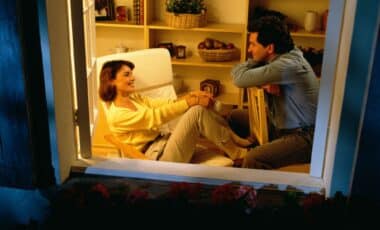
U Soe Win, Myanmar’s last king’s great-grandson
It is strange to think that, but for the vagaries of history, the man sitting opposite me might be the king of Myanmar today. U Soe Win, the great-grandson of King Thibaw, the last of an ancient line of monarchs to occupy what was known as Burma’s Lion Throne, is unassuming in appearance, avuncular even. Now in his 70s, the nominal head of the remaining direct descendents of King Thibaw is soft-spoken but passionate as he talks about the tragic history of his family.
“We lost a great deal,” he says. It is a reference to the fateful day in December 1885 when his great-grandfather was forced to abdicate by an invading British army and then packed off on a bullock cart into permanent exile at Ratnagiri, then an obscure fishing village on India’s west coast. Gone at a stroke were the numerous palaces, vast estates, golden royal regalia and priceless jewellery—including a fabled ruby known as the Nga Mauk, which was reputed to be the size of a duck egg.
While in exile King Thaibaw petitioned successive British governments for the return of his property and following his death in 1916 it was Soe Win’s grandmother, known to the British as the ‘rebel princess’, who took up the cause. Then in 2017 it was U Soe Win’s turn. He visited London on a quest to discover what had happened to the Nga Mauk ruby and although the trip was in vain, he is not about to give up the search. “To find the ruby would be a way of restoring pride in Myanmar,” he says.
Of his family’s former royal residences, today only the Golden Palace at Mandalay is open to the public but Soe Win is campaigning to restore another two with the support of his countrymen: one in Shwebo (twice the size of the Mandalay palace) and another in Amarapura, the original royal capital. “I want to work with the people of Myanmar,” he says. “Not, you understand, within any form of restored monarchy, but as a fellow citizen who thinks it is important that we know our history and understand and protect our country’s heritage.”
Unlike some of his exiled ancestors, Soe Win explains that he has had a relatively comfortable life. To be productive for his country, he joined the Ministry of Foreign Affairs and served as a diplomat in Hong Kong, Washington, Beijing and Tokyo. He says it was always his aim to promote a positive image of Myanmar overseas, even during the darkest periods of military rule.
Now retired, Soe Win and his relatives are hopeful of one day repatriating the remains of King Thibaw. To mark the centenary of the last Burmese monarch’s death, he and family members were joined by a high-level delegation, including senior members of the junta, on a visit to Ratnagiri to perform a pardawmu ceremony honouring exiles. Englishman Alex Bescoby, friend of the former diplomat and the maker of We Were Kings, the documentary being screened in Bangkok, accompanied them.
You can watch the teaser of the film here:
Passionate about football—he once managed Myanmar’s under-19 football team and headed the international department of the Myanmar Football Federation—Soe Win is the father of three children. His son runs a printing business, while his daughters are married and settled overseas, one living in the US and the other in Vietnam. On a parting note, he says he has enjoyed his latest visit to Bangkok. “I love Thailand and come here often. When I see how much the late Thai monarch has done for his people, I am full of admiration. I wish I could do a fraction of that for the people of Myanmar.”
You can learn more about We Were Kings at grammar-productions.com.






